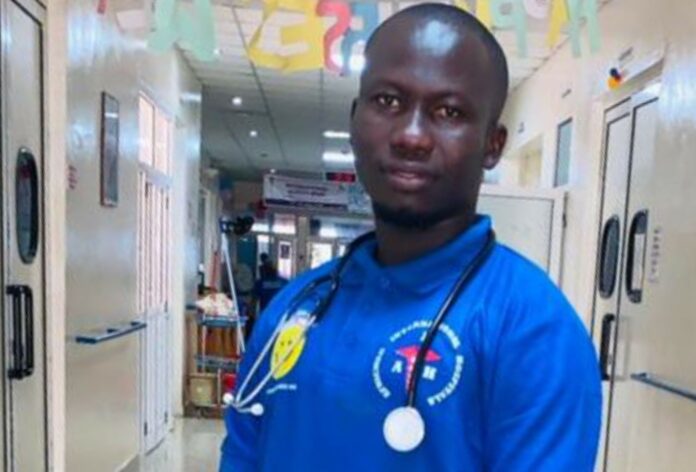By: Michaella Faith Wright
In recognition of Breast Cancer Awareness Month, Mass Manneh, Head of the Intensive Care Unit, Major Trauma, and Ambulance Service at Afrimed International Hospital, has called for increased awareness, early detection, and education on breast cancer. In an exclusive interview with The Fatu Network, he stressed the importance of understanding the disease, its symptoms, and the need for timely medical intervention, particularly for women in rural areas of The Gambia, where access to medical services is limited.
“Breast cancer is a form of cancer caused by abnormal cell growth in the breast, and when these cells multiply uncontrollably, it leads to what we call breast cancer,” explained Manneh. He emphasized the global impact of the disease, describing it as the leading cause of cancer-related deaths in women across many countries. Manneh added that, while breast cancer is more common in women, men are not exempt, though cases among men are significantly rarer.
Manneh stressed the importance of recognizing the early signs and symptoms of breast cancer, which can include changes in the shape or size of the breast, discharge from the nipple, or the development of lumps under the breast, referred to as axillaries. “Every individual knows their body best. If you notice changes, such as hardening of the breast or discharge from the nipple, it is crucial to seek medical attention early. Early detection makes all the difference,” he said.
Addressing the rural communities of The Gambia, Manneh highlighted the need for increased outreach and sensitization, especially in areas where access to medical services is limited. He proposed organizing medical camps to educate and screen individuals in the interior regions, emphasizing that early detection through screenings like mammograms can significantly improve survival rates.
Manneh also discussed the treatment options available for breast cancer, which are often divided into surgical interventions, chemotherapy, and radiotherapy, depending on the stage of the cancer. He underscored that early-stage breast cancer is far more manageable and that treatment options are more effective when the disease is detected early.
He touched upon the societal challenges that women with breast cancer face, such as body shaming and the psychological toll of undergoing treatment. “Women often feel neglected or shamed because of how their bodies change during treatment. It’s essential that we as a society provide them with support and encourage them to accept their medical condition. This is not the end of their lives; with the right treatment, they can regain their confidence and lead normal lives.”
Manneh’s advice to women in The Gambia is clear: “Do not wait until it’s too late. Screening is free, and early detection can save your life. Accept the diagnosis, trust the process, and remember, this is not the end of your life. With support and treatment, you can return to a normal life and continue to be there for your family and loved ones.”
As The Gambia continues to grapple with limited access to specialized cancer treatment centers, Manneh urged the government and health organizations to invest in public health education and accessible screening services, ensuring that no woman is left behind in the fight against breast cancer.




